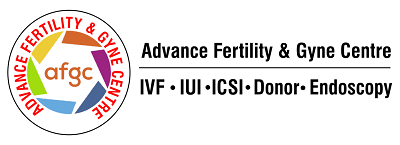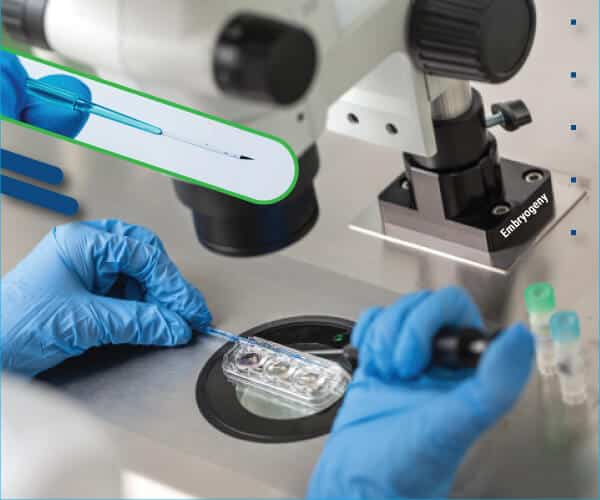At Advance Fertility & Gyne Centre, we recognize the diverse paths life can take. Pursuing education, career advancement, or the perfect partnership are all valid reasons to postpone starting a family. Some might simply prefer to relish a child-free lifestyle for the moment. And for those facing health concerns or undergoing cancer treatments, the decision to delay childbearing is often a necessity.
Does this sound like you? If it does, there’s no need to worry about your biological clock or future fertility. We offer fertility preservation services such as frozen embryo transfer (FET) to preserve your reproductive potential so you can still have a child when you’re ready—whenever that might be.
FET involves the cryopreservation of embryos at a specific stage in the fresh stimulation cycle. This technique is frequently a component of our IVF treatments, designed to enhance the likelihood of a successful pregnancy. If you’re unfamiliar with FET or IVF, don’t worry. Our comprehensive guide is here to provide you with all the information you need to understand these processes and how they align with your reproductive goals.
Understanding FET
Frozen embryo transfer involves thawing cryopreserved embryos from a previous IVF cycle. The process involves transferring the embryo into the uterus in a carefully timed cycle. This way, we ensure a carefully controlled and receptive uterine environment that can increase the chances of successful implantation and conception.
How are embryos frozen?
Embryos can be frozen in two ways:
-
Slow freezing:
In this method, gametes at slow temperature fluctuations from 0.3 to 2 degrees Celsius per minute until we reach -196 degrees Celsius. For this process, a low concentration of cryoprotectants is introduced during the exchange of extra- and intracellular spaces to protect the cells, ultimately reducing the risk of deformation and serious osmotic effects.
-
Vitrification:
Also known as flash freezing or fast freezing, this non-equilibrium procedure involves high amounts of cryoprotectants to eliminate the formation of ice crystals in the embryos. It’s the fastest way to freeze embryos.
At Advance Fertility & Gyne Centre, we have the latest technologies and techniques to retrieve, freeze, and thaw embryos effectively and safely. We use cryopreservation to make embryos easy to store for later use. Plus, we ensure our methods allow for flexible timings for frozen embryo transfer.
FET is usually better than fresh embryo transfer in some cases, especially when it allows enhanced synchronization between achieving optimal uterine environment and embryo readiness. We can store frozen embryos and use them in later cycles when necessary. In addition, this allows couples to plan their pregnancy more flexibly. At Advance Fertility, we also allow patients to time their FET procedure.
When do we recommend FET?
At Advance Fertility & Gyne Centre, our specialist team will look into your condition and needs before recommending FET. We consider these things when determining if frozen embryo transfer is right for you:
- Hormonal imbalance
- Surplus embryos
- You’re not medically suitable for transfer during an IVF procedure
- Fluid in the endometrium
- Ongoing or upcoming cancer treatment
- You want to postpone your pregnancy for a later date
- PGD or PGS
- OHSS
How long can embryos remain frozen?
We follow the Human Fertilisation and Embryology Act when conducting the frozen embryo transfer. That means we freeze gametes or embryos for up to 10 years. In India, we can keep embryos frozen for up to five years, but we can extend and renew the freezing when necessary.
How are embryos thawed?
One of the critical steps in frozen embryo transfer is the thawing of embryos. Initially, we remove them from the liquid nitrogen and expose them to room temperature. At this stage, the embryo becomes dehydrated as it acquires low osmolality. But don’t worry, as it will resume its original shape. From there, we will allow it to grow continuously in a cultural medium.
The FET Process
Before frozen embryo transfer, we will administer estradiol valerate to prepare the endometrium on your menstrual cycle’s first or second day. This should help your endometrium become 8mm thick. From there, we will start progesterone treatment and transfer the thawed embryos a few days later. After the procedure, we will prescribe some medications to support the luteal phase. You must take these prescription medications for two weeks until we perform a pregnancy test.
Success rates
Like IVF, frozen embryo transfer will succeed depending on certain factors, such as the quality of the eggs, the patient’s age, and the thawing techniques. The transfer techniques, endometrium health, and quality of the sperm and egg can also impact the success rates of FET.
Understanding the embryo cycle
At Advance Fertility & Gyne Centre, our specialists also closely monitor the embryo cycle to ensure the success of your frozen embryo transfer process. Here’s what’s involved in this cycle:
-
Fertilisation –
The embryo cycle starts when the egg and sperm fuse, leading to fertilization. This typically happens in the fallopian tube and results in a zygote.
-
Cleavage –
At this stage, the zygote undergoes a cleavage process, meaning it’s dividing to form a multicellular structure. These early divisions create the morula before forming the blastocyst.
-
Blastocyst formation –
The blastocyst contains an inner cell mass that will turn into the fetus. Meanwhile, its outer layer of cells becomes the placenta. However, the blastocyst must reach a particular development stage before it’s suitable for implantation.
-
Implantation –
This occurs when the blastocyst implants into the uterine lining. At this point, the embryo must securely adhere to the uterine wall to promote further development.
-
Organogenesis –
This stage involves the formation of body structures and organs in the embryo, including the limbs, brain, and heart.
-
Fetal development –
The embryo develops further until it becomes a fetus. From here, it continues to grow and mature until the baby is ready to be born.
Are you considering FET? Book an appointment with us by calling +91-9871250235. Our fertility specialists are ready to help you plan your procedure and time your treatment to increase your chances of becoming pregnant.


